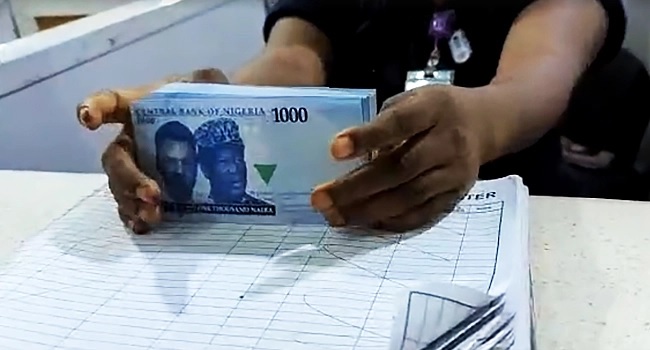
Nigeria is planning to introduce new foreign exchange rules to reduce the gap between the official and parallel market rates for the naira, according to Bloomberg.
As part of the move, the government hopes to close the more than 45% gap by year-end, according to Taiwo Oyedele, chair of the presidential committee on fiscal policy and tax reforms. This means clearing a backlog of dollar demand, bolstering the naira forward market, and setting transparent rules for the official market’s operation.
“We think all of that will happen before December, and maybe in a matter of a couple of weeks we will begin to see the results, such that before the end of the calendar year, naira should find its true value, not the one that is being done currently in the parallel market,” Bloomberg quoted Oyedele to have said.
Tekedia Mini-MBA edition 16 (Feb 10 – May 3, 2025) opens registrations; register today for early bird discounts.
Tekedia AI in Business Masterclass opens registrations here.
Join Tekedia Capital Syndicate and invest in Africa’s finest startups here.
The government aims to expand the official market to include all legitimate transactions while cracking down on the illicit parallel market for foreign currency. The government sees a “fair price” for the dollar at N650 to N750. Currently, the official exchange rate is around N800 per dollar.
Ongoing Efforts to Stabilize the Naira
Since Nigeria floated its FX market in mid-June, allowing the naira to trade more freely against the dollar, there has been a significant gap between the official and parallel-market rates, leading to issues of liquidity and the attractiveness of the parallel market’s premium.
Oyedele said the divergence between the official and parallel-market rates “means you are sucking liquidity and supply from the official market to the parallel market, because everyone wants the premium.”
The government has undertaken efforts to reverse this flow of dollars from the official FX window to the parallel market, with measures such as executive orders for dollar-denominated instruments and bonds. In addition, the central bank aims to bring more clarity to how the forex market operates.
The government has also made efforts to boost FX liquidity in the official market, aiming to force prices down in the parallel market. Part of the efforts was disclosed by finance minister, Wale Edun, at a summit in Abuja last week, that Nigeria expects to receive $10 billion of inflows in the coming weeks that will help ease liquidity and clear the backlog of overdue forward contracts weighing on the naira.
Also, President Bola Tinubu has signed two executive orders intending to stabilize Nigeria’s currency and attract investments. One order enables the issuance of dollar-denominated instruments for Nigerians holding dollars locally, while the second facilitates the issuance of dollar-denominated bonds for Nigerians abroad and foreign investors.
These measures are intended to reverse the flow of dollars from the official FX window to the parallel market, providing alternative channels for currency usage and investment. The executive orders are in the process of being officially announced.
However, these efforts have been juxtaposed by prevaricating management decisions of the central bank in striking a balance between a more flexible exchange rate system and maintaining stability in the currency. For instance, while the central bank initially indicated in June that the naira’s exchange rate would be determined by supply and demand, it later appeared to reintroduce controls to stabilize the currency following a 40% devaluation.
Naira Performance
However, the naira has appreciated in the market in recent days, a performance attributed to news that the government is working to secure a $10 billion loan to boost dollar liquidity.
But despite recent appreciation on the parallel market, the naira still faces a significant gap between the official and parallel rates. On the parallel market, the naira closed at N110/$ on Monday, compared to N1230/$ the previous Friday. In contrast, the official Investor & Exporter (I&E) window (newly renamed Nigerian automated foreign exchange market, NAFEM) closed at N993.82/$, weaker than the N789.94/$ the previous Friday.



